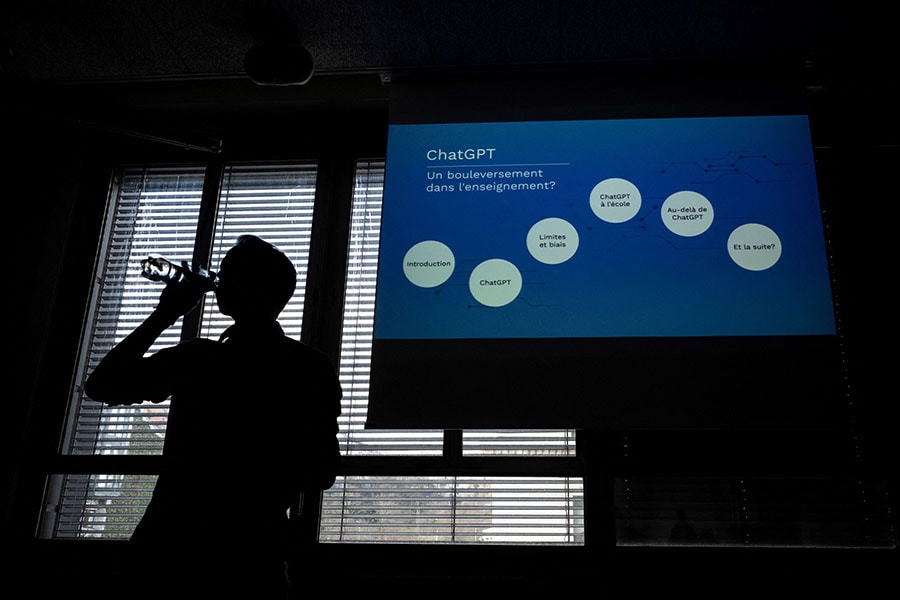
'Upending the world': Swiss teachers take on ChatGPT
The release of ChatGPT, which uses artificial intelligence to convincingly mimic human writing, has sparked concerns in schools worldwide of a looming cheating epidemic
 High school English and philosophy teacher Eric Vanoncini is seen in silhouette drinking water prior to leading a workshop on ChatGPT bot
Image: Fabrice Coffrini / AFP
High school English and philosophy teacher Eric Vanoncini is seen in silhouette drinking water prior to leading a workshop on ChatGPT bot
Image: Fabrice Coffrini / AFP
"It is dizzying," Eric Vanoncini acknowledged to the classroom full of anxious teachers as reams of text generated by the ChatGPT bot unfurled on the large screen behind him.
"It risks upending the world of education as we know it."
The high school English and philosophy teacher had gathered dozens of educators for one of several workshops hastily organised in the Swiss canton of Geneva following urgent appeals for guidance on how to deal with the new know-it-all bot.
The release in November of ChatGPT, which uses artificial intelligence to convincingly mimic human writing, has sparked concerns in schools worldwide of a looming cheating epidemic.
"It is worrying," Silvia Antonuccio, who teaches Italian and Spanish, told AFP after the workshop







